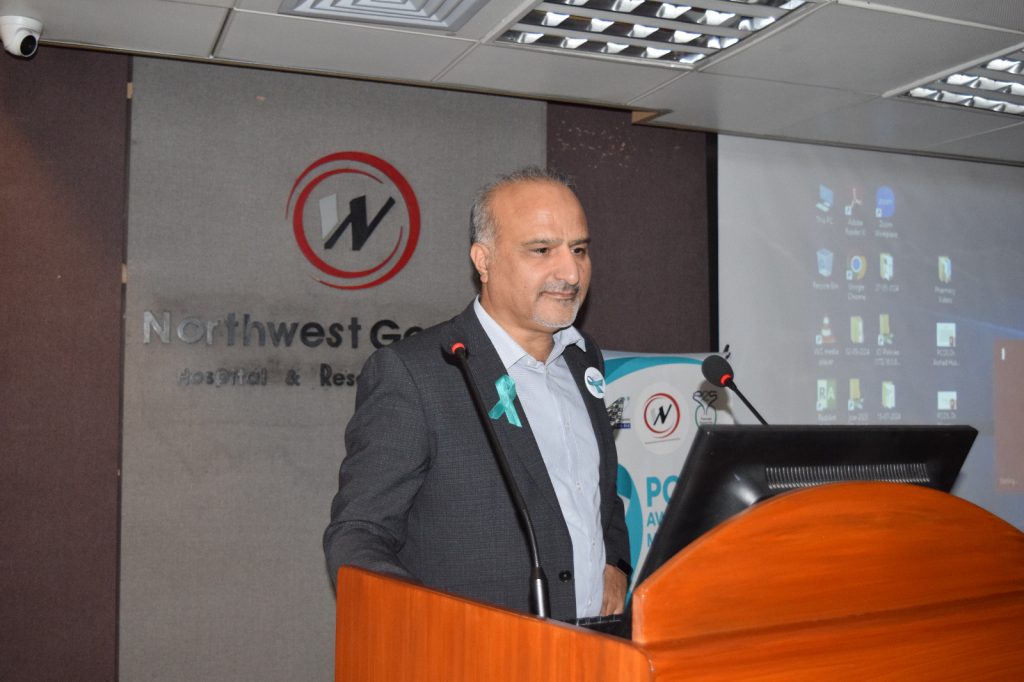The Medical Professional Education Department (MPED) of NWGH & RC Peshawar, in collaboration with the Pakistan Endocrine Society, successfully held a symposium titled “Breaking the PCOS Code: A Guide to Diagnosis and Treatment” on September 20, 2024. This event was coordinated in partnership with the Departments of Obstetrics and Gynecology and Endocrinology. The symposium addressed the crucial aspects of diagnosing and treating Polycystic Ovary Syndrome (PCOS), a condition affecting an estimated 8-13% of women of reproductive age worldwide.
Keynote Speakers:
Dr. Nizamud Din emphasized the importance of early detection and management of PCOS in adolescents and premarital women. Recent studies suggest that early intervention can significantly reduce the risk of long-term complications, such as diabetes and cardiovascular diseases. He pointed out that adolescents with PCOS often exhibit symptoms like irregular menstrual cycles and hirsutism, which can be effectively managed through lifestyle changes and appropriate medical treatments.
Prof. Dr. Arshad Hussain delivered an engaging session on the link between PCOS and metabolic syndrome. He highlighted recent findings indicating that women with PCOS have a higher prevalence of metabolic syndrome, with estimates suggesting that 30-50% of these women may be affected. This condition increases the risk of type 2 diabetes, gestational diabetes mellitus (GDM), and cardiovascular disease, making awareness and management critical for improving long-term health outcomes.
Prof. Dr. Sidra Jabbar Khan shared valuable insights into infertility treatment for women with PCOS. She noted that PCOS is one of the leading causes of infertility, impacting up to 70% of women experiencing difficulty conceiving. Prof. Dr. Jabbar Khan discussed recent advancements in treatment options, including lifestyle interventions, ovulation induction therapies, and assisted reproductive technologies, all of which have demonstrated promising success rates.
This symposium marks a significant step forward in MPED’s commitment to enhancing medical education and equipping healthcare professionals with essential knowledge on PCOS management. By facilitating discussions on early detection, metabolic implications, and treatment options, the department aims to improve patient outcomes. MPED looks forward to organizing more educational initiatives to further support continuous professional development within the medical community.

